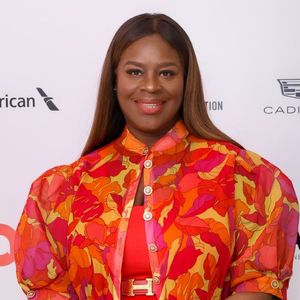Inching toward a
break with the church over homosexuality, conservative
Episcopal bishops failed to win approval Wednesday for their
request to stay in the denomination without answering
to its national leader, who supports same-sex
relationships. The proposal was the subject of a
private meeting of 11 Episcopal bishops, organized at the
request of Archbishop of Canterbury Rowan Williams.
Williams is trying to keep the Episcopal Church and
the world Anglican Communion unified despite deep
rifts over how to interpret Bible verses on gay sex.
In a joint statement, the bishops said they
recognized the need to accommodate the seven dioceses
that have rejected the authority of presiding
bishop-elect Katharine Jefferts Schori, who is
supportive of same-sex relationships. But they said
they "were unable to come to common agreement on the
way forward." They pledged to "work together until we
have reached the solution God holds out for us."
In a separate statement, Williams, the spiritual
leader of the communion, said it was a "positive sign"
that the talks occurred and that the "process at work"
will continue. The Episcopal Church is the U.S. arm of
the global Anglican fellowship.
In 2003, the U.S. branch caused an uproar
when it consecrated its first openly gay bishop, V.
Gene Robinson of New Hampshire. This past June the
divisions intensified when the Episcopal general convention
elected Jefferts Schori, who will be installed November 4.
The first woman elected to lead the church, Jefferts
Schori is open to gay ordinations and the blessing of
same-sex unions.
The seven conservative dioceses at odds with the
denomination are asking Williams for alternative
oversight from an Anglican leader who shares their
traditional views. The dioceses are Dallas; Central Florida;
Fort Worth, Texas; Fresno, Calif.; Pittsburgh;
Springfield, Ill.; and South Carolina. Two more
dioceses--Quincy, Ill., and Albany, N.Y.--are
considering a similar request.
Among the bishops who participated in the
three-day talks were Jefferts Schori and Pittsburgh
bishop Robert Duncan, leader of a network of Episcopal
conservatives. Williams also sent a representative, Canon
Kenneth Kearon, the secretary general of the Anglican Communion.
In a phone interview Duncan said that Jefferts
Schori and outgoing presiding bishop Frank Griswold
"genuinely wanted to do something" to help
conservatives but believed they did not have the
authority to do so without consulting church governing
bodies first. Instead, Williams and world Anglican
leaders will have to take up the proposal, Duncan
said. Anglican archbishops are scheduled to meet next
February in Tanzania.
The seven dioceses issued a joint appeal to
Williams in July, describing themselves as "threatened
by a hostile" national church, which they accused of
"arrogance" in their response to conservatives. The
dioceses noted that many U.S. parishes that oppose ordaining
gays have already broken away and joined conservative
Anglican dioceses in Africa and Latin America.
"There are two churches under one roof," Duncan said.
Griswold said it was clear after the meeting
that the church needed a "changed environment in which
controversial points of view are not treated as beyond
the community.... They have a place within the
community to be taken seriously and respected as held by
genuine people of faith."
Conservatives are a minority in the 2.3
million-member U.S. church, but a split could
still cause extensive damage. A break would likely prompt
expensive and bitter legal fights over parishes that want to
take property with them as they leave.
Next week about two dozen Episcopal bishops who
oppose recognition of same-sex relationships are
scheduled to meet north of Houston to discuss their
future within the church. Also next week, conservative
Anglican archbishops from Africa and elsewhere will do
the same in Rwanda.
Worldwide, Williams has proposed giving Anglican
churches with nontraditional views on gay clergy a
lesser role in the communion under a two-tiered system
meant to prevent a schism. (Rachel Zoll, AP)



















































































